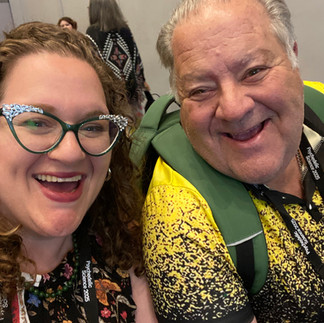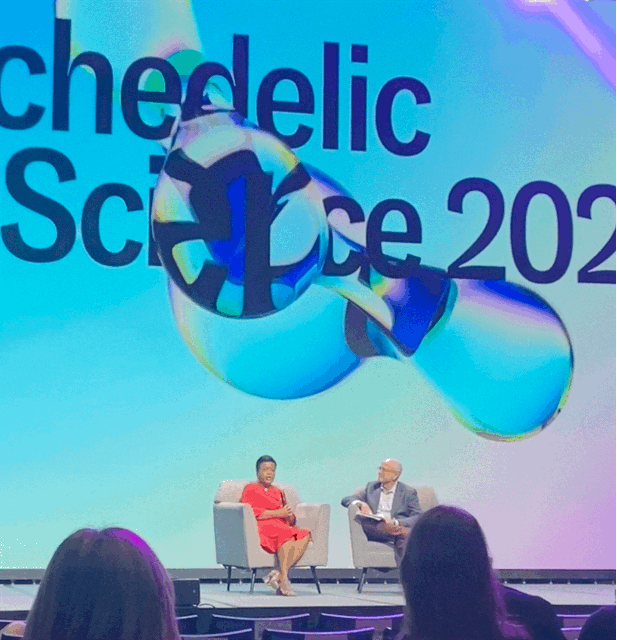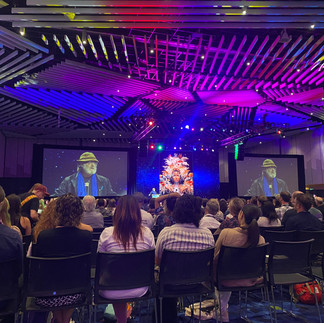Psychedelic Science 2025 Recap from RZA Legal!
- Rachael Z. Ardanuy, Esq.

- Jun 26, 2025
- 3 min read

Last week, I had the joy of attending Psychedelic Science 2025 in Denver—a major gathering of researchers, policymakers, healers, and advocates focused on the future of plant medicine. Here are a few highlights from the experience:
Policy Lessons from Cannabis to Psychedelics
Day one kicked off with "Approaches to Regulating Plant Medicine,” a deep dive into how lessons from cannabis legalization are shaping psychedelic policy. Colorado’s own Dominique Mendiola and drug policy expert Cat Packer shared insights on what’s working, what needs rethinking, and how equity and ecology must be front and center moving forward—an essential reminder that this movement doesn’t happen in a vacuum.
Ancient Fire, Modern Justice
Next, I was transported through time in "Burning Bushes to Sacred Fires," an exploration of ancient psychedelic sacramental use from Egypt to Persia. From ancient sacred plant use to modern stories of criminal legal reform, the first day also offered "Lessons on Criminal Legal Reform," featuring Michael Diaz-Rivera of Better Days Delivery, Adrian Rocha and Dante West from cannabis justice non-profit Last Prisoner Project, and Sia Henry from MAPS who engaged in powerful conversations reminding us that decriminalization must include restorative justice.
That evening, I joined colleagues and friends for a relaxed afterparty at Cirrus Social Club, hosted by Oregon-based CPA firm, CALYX. Good company, classy vapor, and lively conversation made for a perfect close to day one.
Parenting & Psychedelics
Day two opened with a panel that hit home: how do parents and caregivers navigate psychedelic spaces? This honest and grounded session, rooted in Indigenous knowledge, challenged the silence around psychedelic parenthood—and emphasized that healing, parenting, and community care are not just connected—they’re inseparable.
Mystical Experience Meets Theology
Researchers shared findings from a clinical study exploring how clergy members from major religions interpreted their psilocybin experiences. The work dives deep into how mystical, spiritual, and transcendent encounters can shape theological perspectives—offering new insights into how psychedelics may serve those seeking connection, meaning, or divine understanding within traditional faith frameworks.
Rastafari, Africa & the Amazon
My favorite session of the day was a cultural conversation on spiritual use of plant medicine at the Rastafari Indigenous Village outside Montego Bay, Jamaica. Firstman, "a longtime advocate for for the sustainable development of the cultural industry through the preservation, protection and promotion of cultural events; community development projects; traditional knowledge, and indigenous expression” is one of the original founders of Rastafari Indigenous Village; a father, drummer, chanter, singer, songwriter, and orater. Firstman shared how Rastafari communities in Jamaica are incorporating additional entheogens into their sacred traditions, highlighting the power of nature-based values to connect people across language, lineage, and land.
Paul Stamets Closes it Out
The week wrapped up with “Paul Stamets in His Natural Habitat: How Mushrooms Can Save the World,” where legendary mycologist Paul Stamets walked us through the psilocybin mycosphere, making a powerful case for mushrooms as a scalable, affordable path toward both individual healing and collective evolution. With passion and precision, Stamets framed psilocybin mushrooms not just as a therapeutic tool but as a key to unlocking human potential.
Final Thought:
From policy blueprints to spiritual lineages, the message in Denver was clear: the future of psychedelics isn’t just scientific or therapeutic—it’s cultural, ecological, and deeply rooted in connection.
Thanks for being part of this growing conversation. Let’s keep moving forward—thoughtfully, inclusively, and in community.
Want to talk more about how psychedelics, policy, or plant medicine intersect with your business or practice? Comment below—I’d love to connect.
Follow on Social media:
-01_edited_edi.png)






















Comments